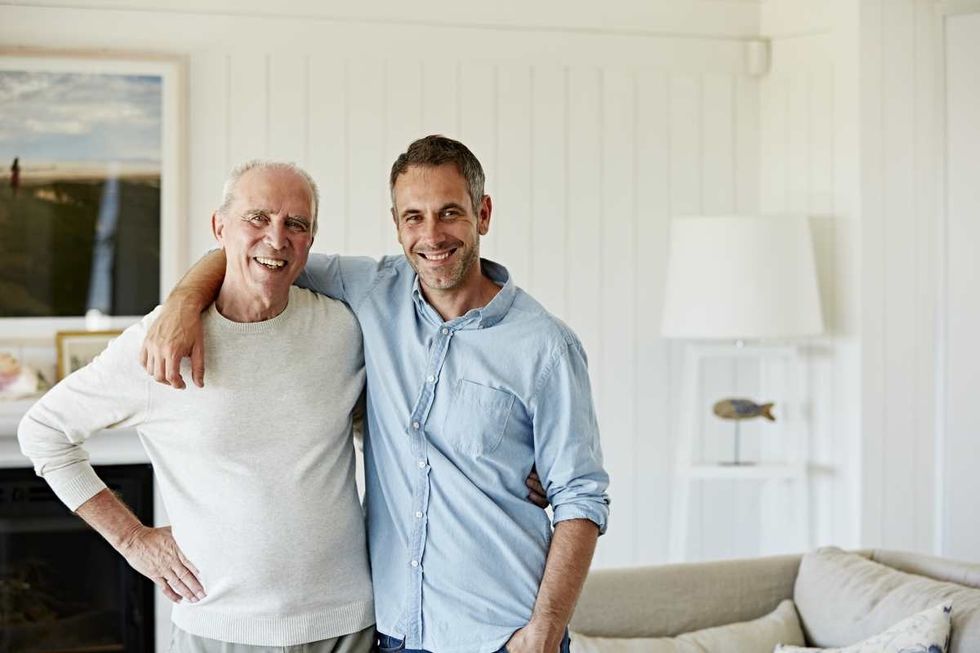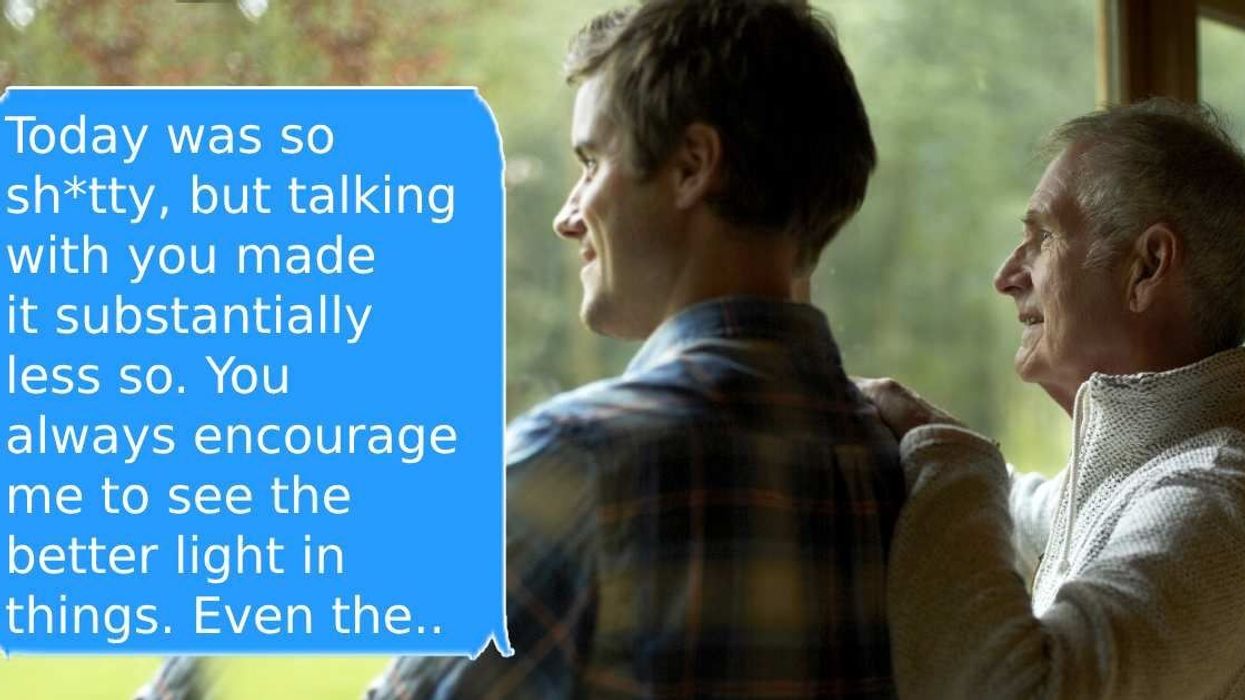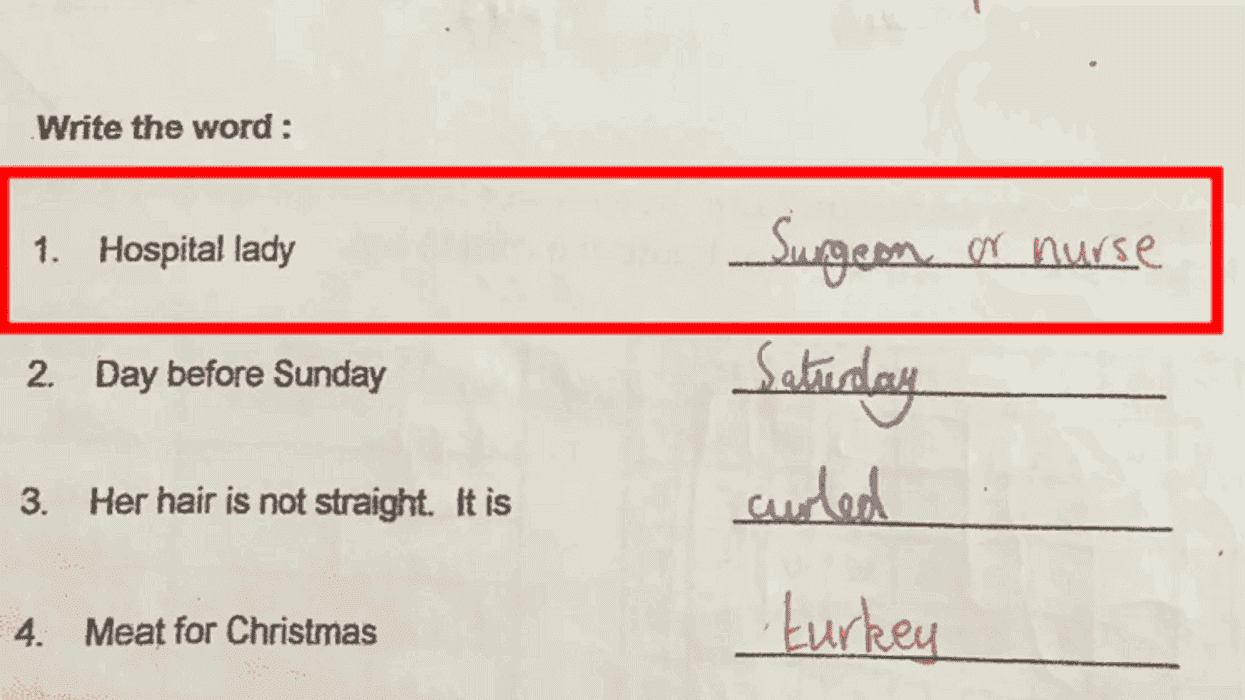Twenty years ago, a young boy told his single dad that he was his best friend. His dad, in response, said, "I'm not your best friend. Friends go away." Fast forward to today, and that boy, now 27, shares a bond with his 62-year-old father that’s the true definition of a beautiful father-son relationship. His dad has always been someone he can open up to without hesitation. Recently, the man—who goes by u/sneezedr424 on Reddit—shared an emotional exchange with his father that moved him to tears. Posting in the r/MadeMeSmile group, he captioned it simply, “I love my dad.”

In the post, he shared a screengrab of a text message he sent to his dad. “Thank you for always having my back,” he wrote. “Today was so sh***y, but talking with you made it substantially less so. You always encourage me to see the better light in things and help me find solutions to frustrating and difficult problems. Even the simple act of hearing your voice makes me smile, and relaxes me.”

He concluded the message with a teary-eyed emoji, writing, “I love you more than you will ever know. Thanks for being everything that you are.” In a response that stirred people’s hearts, the text message of their dad read, “I’m your dad. That’s all I ever wanted to be.” The crisp one-liner amassed 50,000 upvotes and over 600 comments.
People said they felt bemused by the heartwarming and open relationship between him and his dad. Those who have tough or absent dads said they were envious. “This is wonderful - both what you said and his response. As someone whose parents never ever had their back, I'm envious. Please don't ever take it for granted,” commented u/indymlvc. u/lasonna51980 said, “Man, I wish I could text my dad that. Good for you both for having a great relationship.”

Reflecting on the sweet interaction, u/madamnaturegalaxy3 wrote, “You two are so sweet. The way you express your feelings to him shows that you're comfortable being vulnerable with him. I wish my dad had been that for me too.” u/wil added, “As a son, I did not have this dad. As a dad, I'm doing everything I can to be this dad to my sons.”

In a comment, the Redditor revealed that his dad is the parent who raised him and his brother all by himself for most of their life, while their mom was out of the picture for some reason he didn’t explain. He said that his dad started out as a park ranger and some days they barely had anything to it. “Despite that, he continued to do things like take us on road trips, take us to museums, go to parks and hike, anything he could think of. Once a week we would go to Blockbuster and get a movie. He was always available physically and emotionally, which is amazing for a single parent, and now he gets flowers on Mother's Day and tools on Father's Day lol.”



















 Oral Wegovy pills were approved by the Food and Drug Administration in December 2025 and became available for purchase in the U.S. in January 2026.
Oral Wegovy pills were approved by the Food and Drug Administration in December 2025 and became available for purchase in the U.S. in January 2026. Despite the effectiveness of GLP-1 drugs for weight loss, there is still no replacement for healthy lifestyle patterns, including regular exercise.
Despite the effectiveness of GLP-1 drugs for weight loss, there is still no replacement for healthy lifestyle patterns, including regular exercise.


 What foods would you pick without diet culture telling you what to do?
What foods would you pick without diet culture telling you what to do?  Flexibility can help you adapt to – and enjoy – different food situations.
Flexibility can help you adapt to – and enjoy – different food situations.
 Anxious young woman in the rain.Photo credit
Anxious young woman in the rain.Photo credit  Woman takes notes.Photo credit
Woman takes notes.Photo credit 
 Revenge can feel easier than forgiveness, which often brings sadness or anxiety.
Revenge can feel easier than forgiveness, which often brings sadness or anxiety. 
 In the past two years, two malaria vaccines have become available for babies starting at 5 months of age.
In the past two years, two malaria vaccines have become available for babies starting at 5 months of age. By exploiting vulnerabilities in the malaria parasite’s defense system, researchers hope to develop a treatment that blocks the parasite from entering cells.
By exploiting vulnerabilities in the malaria parasite’s defense system, researchers hope to develop a treatment that blocks the parasite from entering cells. Created with
Created with